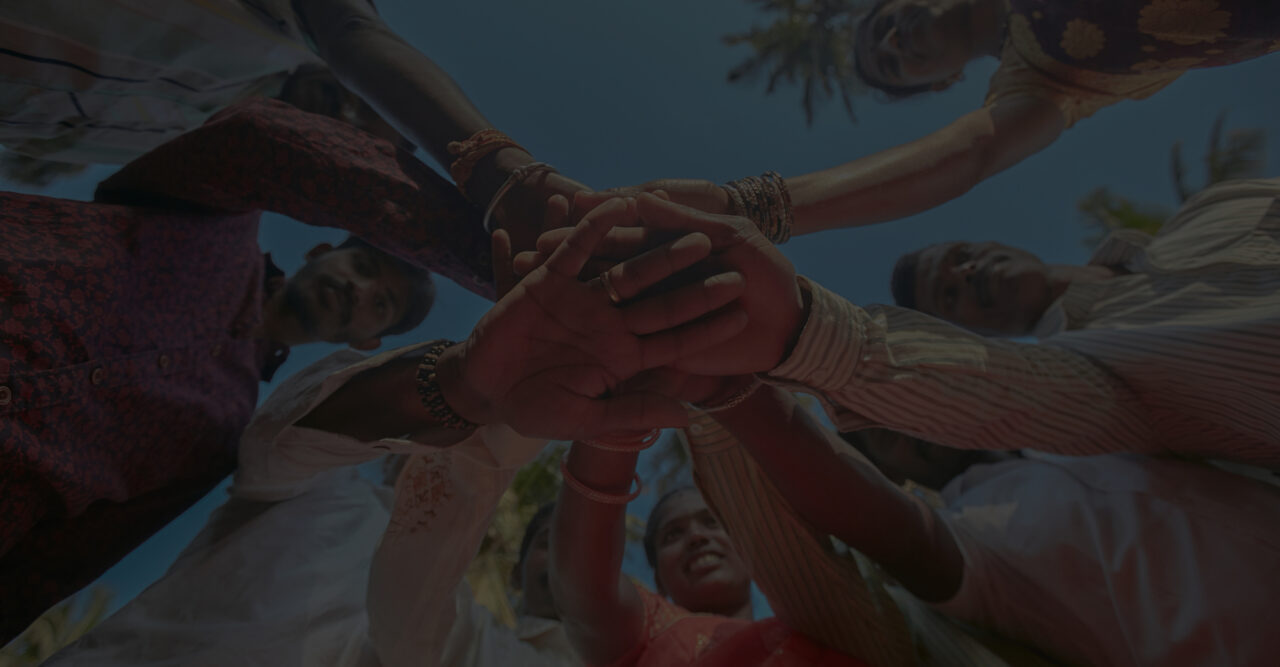
Creating a Safer World, Together
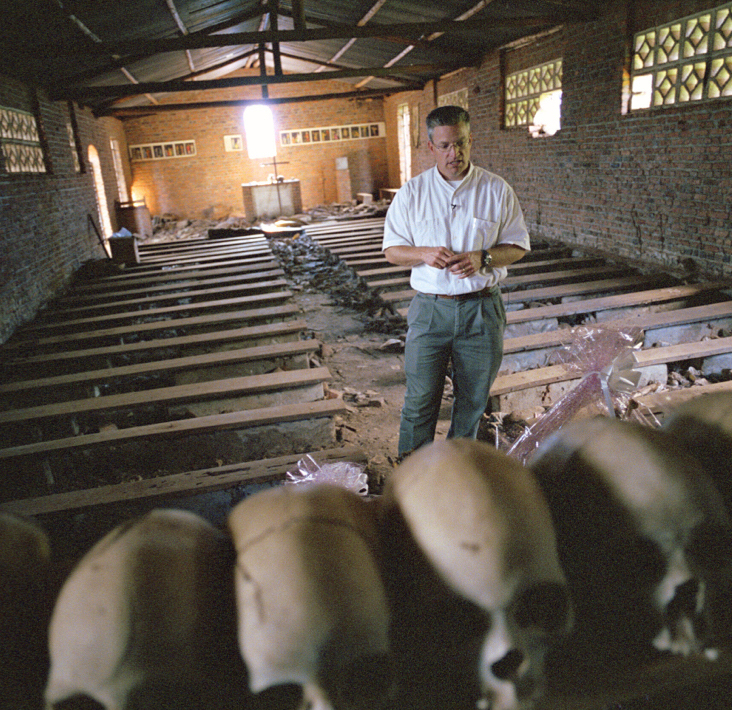
Late 1990s — We Were Told It Was Impossible
Gary Haugen was a leading human rights lawyer with the United States (US) Department of Justice. As the Director of the United Nations' investigation of the Rwandan genocide, his firsthand experience investigating systemic human rights abuses helped him recognize a troubling pattern: people living in the world’s poorest communities also experienced relentless daily violence. In addition to the struggle of surviving extreme poverty, they also lived in constant physical danger. Gary wanted to know why, and he found the answer: they had no one to protect them. Their local justice systems weren’t equipped to defend them from the violence they faced every day. Gary was told that this would never change, but he believed otherwise.

1997 - International Justice Mission is Born
When IJM was first established, Gary expected to receive 5-10 referrals of cases of abuse and oppression from global non-profits working alongside communities experiencing poverty. Instead, they received 20 cases – twice as many as expected. Meanwhile, 58 churches across the US invited IJM to share the vision of ending slavery in our lifetime. It was immediately clear that this vision resonated with a global audience.

1998 - "The good news about injustice is that God is against it."
IJM’s first stories of rescue were officially shared with the world in Gary’s Haugen’s book The Good News About Injustice. More than 20 years later, the iconic, bestselling book was selected and rereleased as part of the IVP Signature Collection of landmark works.

1999 - IJM Rescue Operation Makes National TV
An IJM rescue operation in India became a feature segment on CBS’ 60 Minutes. The story followed the rescue of children trapped in forced labor slavery on a tobacco farm. Soon after the special aired, three children from the documentary were officially granted freedom by the Indian government, and US Customs banned the import of certain tobacco products which were contributing to forced labor slavery.
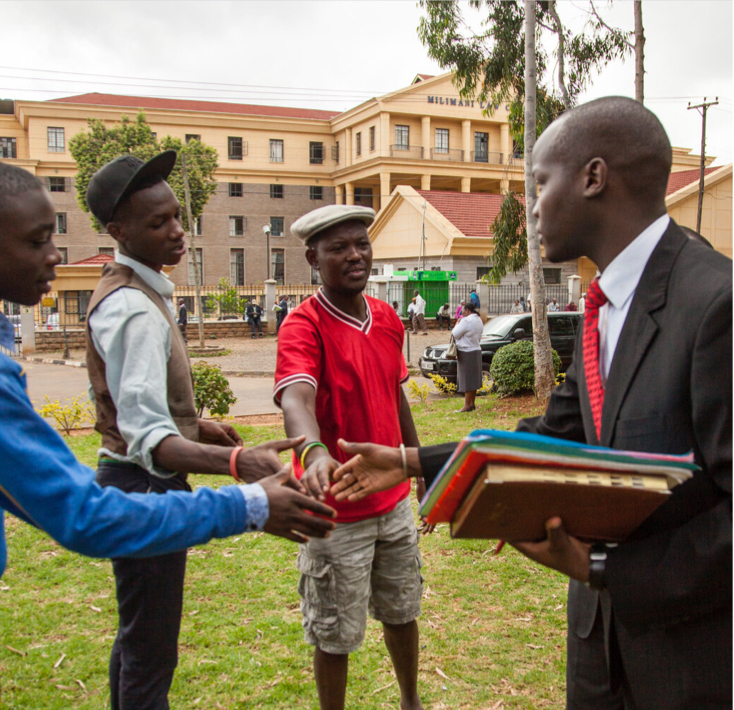
2000s — A Global Movement Catches Fire
In the first few years, IJM helped secure safety and freedom for hundreds of vulnerable people, and awareness of the global problem of violence and human trafficking spread quickly. Government leaders, churches, community groups, advocates and local communities everywhere were inspired to become a crucial part of this movement.

2000 to 2001 – First Field Offices Open and Lead to Hundreds Rescued
IJM’s successful rescue operations helped build trust with local government leaders and local authorities in several countries. This foundation of trusted partnership led to the establishment of IJM’s first five field offices. Mumbai, Manila and Chiang Mai offices opened in 2000 to help rescue and protect women and children from sexual violence and trafficking. In 2001, offices in Chennai and Kenya were established to combat forced labor slavery and protect vulnerable people from violence and wrongful imprisonment, respectively.
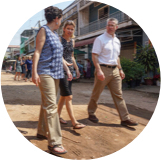
2003 to 2005 – Signs of Justice System Strengthening in Cambodia
In 2004, NBC’s Dateline featured IJM’s rescue of 37 girls under 10 years old from a brothel outside Phnom Penh. In 2005 the Cambodian government invited IJM to train over 100 officials, lawyers and judges to help protect children from trafficking and sexual exploitation. IJM held many more workshops, eventually training 520 police officers to combat human trafficking in their communities. This level of partnership with the highest governing authorities was a sign that, with IJM support, Cambodia’s justice system could grow to protect its most vulnerable communities. As a result, Cambodia’s commercial sex industry decreased significantly in the years that followed.
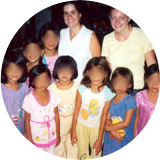
2004 to 2005 – Significant Grants Accelerate IJM’s Expansion and Impact
IJM received multiple large grants from different departments of U.S. government and the Gates Foundation. This overwhelming support represented deeply rooted trust that IJM could effectively help protect vulnerable people from violence.
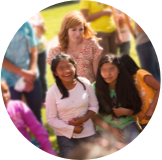
2005 to 2006 – First Two IJM Field Offices in Latin America Begin Operations
When IJM expanded into Latin America, human rights experts said the justice systems were just too broken to be fixed, and that people in poverty could not be protected from violence. Undeterred, field offices in Guatemala and Bolivia were established, demonstrating a commitment by local governments to change the narrative and stand up for the children in their communities.
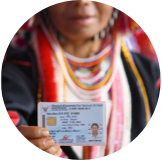
2007 – Sex Trafficking of Minors Significantly Reduces in Thailand
Thanks to IJM's presence in Chiang Mai, local brothel owners became unwilling to traffic minors because the risk of getting caught was too severe. Instead, criminals began trafficking members of a stateless ethnic minority group – an easier crime to hide, at least for the moment. To address this rising new crime, IJM shifted focus towards citizenship rights in order to protect this vulnerable migrant population.
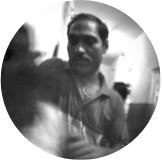
2009 – Infamous Brothel Kingpin Arrest Leads to Dozens Rescued
After seven failed attempts, an infamous brothel owner in Kolkata — known for violently abusing dozens of young girls — was finally arrested by IJM and local authorities. IJM staff and supporters all over the world prayed for this case as it evolved, receiving real-time updates through IJM’s first blog platform. This monumental arrest led to the conviction of nine traffickers and the rescue of four young girls. One of the young girls, Maya*, eventually became a casework assistant for IJM.
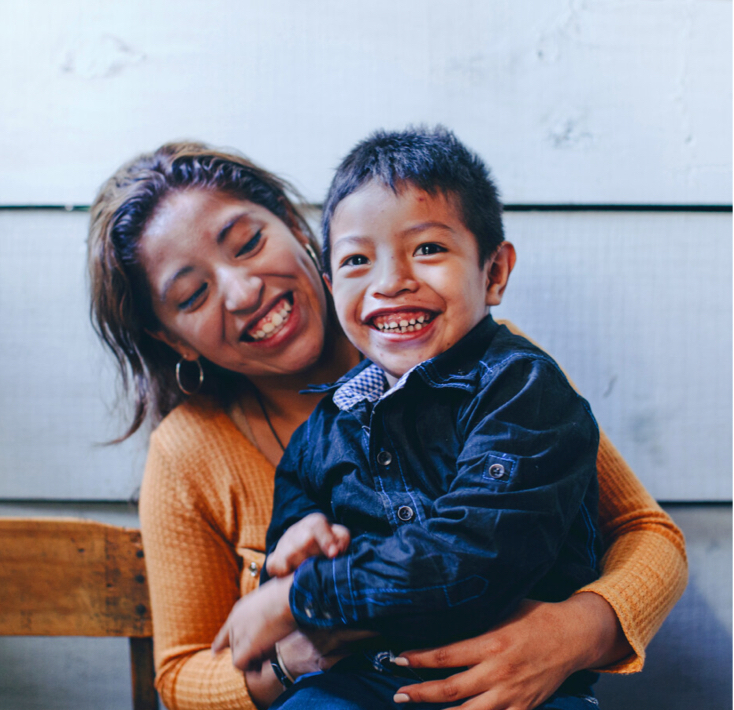
2010s — Communities Transformed Through Stronger Justice Systems
As IJM and partners continued to rescue vulnerable people from exploitation, more and more perpetrators were arrested and convicted for their crimes. And as accountability grew, crime began to decrease, communities became safer and vulnerable people became less vulnerable. This was IJM’s model of protection at work. As IJM and local partners continued to work together to build lasting change, the future of protection began to look clearer every day.

2010 – Partnership with the Gates Foundation Proves IJM’s Model of Justice System Transformation
In 2006, IJM received a $5 million grant from the Bill & Melinda Gates Foundation to prove the effectiveness of their model of protection.
The grant was used to open a field office in Cebu, Philippines with an ambitious goal: a 20% reduction in the
number of children sold for sex trafficking in the metro area. This test would be called "Project
Lantern."
Through Project Lantern, external auditors verified results that were hard to believe at first: an
astounding 79% reduction in children being sold for sex in areas where IJM was present. This was the
first clear-cut, externally validated data that proved IJM’s model could reliably make communities
safer for the world’s most vulnerable people.
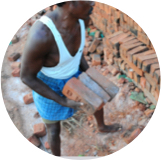
2012 – IJM Influences Historic Shift in Labor Trafficking in India
Labor trafficking in India had never been recognized by the government as a problem, despite millions
of people being exploited and enslaved. But when a woman escaped the forced labor camp where her
husband was killed, IJM learned of her situation and stepped up to advocate for her cause by
publishing her story in the national newspaper. The story led to country-wide awareness of the case
and put pressure on government leaders to act. This opened doors to more partnerships with local
organizations striving to end labor trafficking.
Through IJM’s advocacy and the heroic work of local partners, the government formally acknowledged the
problem of labor trafficking in India and issued official release certificates for rescued survivors
of bonded labor. This granted the survivors legal emancipation from the slave owners who wrongfully
exploited them. Within the same year, funding from Google enabled IJM and local partners to rescue 597
people from bonded labor and train thousands in the community to recognize and combat labor
trafficking. These major steps of progress would have been considered impossible in previous years.
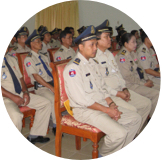
2016 – Justice System Completes Transformation in Cambodia
Cambodia’s field office became the first IJM office to celebrate complete justice system
transformation. After two decades of partnering with IJM, local authorities were fully trained to recognize child sex trafficking and effectively enforce laws to hold perpetrators accountable. This led to a reduction in sex trafficking of minors by 73%, representing thousands of children who would now be protected from the daily threat of this horrific violence.
The success of strengthening the local justice system’s response to sex trafficking opened the door
for IJM to shift its focus towards labor trafficking in Cambodia.
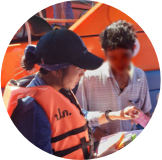
2017 – Partnership with The Walmart Foundation Tackles Modern-Day Slavery in the Fishing Industry
IJM collaborated with the Walmart
Foundation and the U.S. State Department to bring about tremendous advances in measuring and combating trafficking and abuse in the Thai fishing industry. This
unprecedented level of partnership united private and non-private foundation resources to work
together towards ending slavery.
This partnership led to the opening of a new office in Bangkok, funded by a diverse group of
supporters united by the same cause.

2017 – First Online Sexual Exploitation of Children Conviction in the Philippines
As reports of online sexual exploitation of children (OSEC) in the Philippines grew, IJM began to focus on developing the training and technology necessary to stop this crime. In May of 2017, a brave survivor named Cassie* testified in court against the man who abused her. With the support of IJM Manila, the perpetrator was convicted, marking the first case of online sexual exploitation won in the country. Cassie would later become a survivor leader, advocating to protect children against this crime and inspiring tens of thousands with her courage.
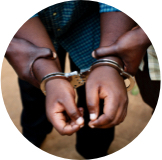
2019 – Landmark Conviction of Senior Officer in Kenya
IJM’s work in Kenya to combat rampant police abuse of power took a major leap forward when, for the first time in Kenya’s history, a senior police officer was convicted of brutally beating and killing a man in his custody. This conviction was the result of a five-year legal battle and our Kenyan team’s relentless pursuit of justice. Dozens more convictions soon followed this case as more evidence of police abuse of power was exposed by grassroots community groups and local partners.
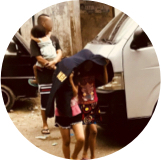
2019 – Europol's Most Wanted OSEC Offender Arrested
IJM collaborated on an international, national and local level helped secure the conviction of Europol’s former most wanted criminal. He was sentenced to 20 years in prison in the Philippines after pleading guilty to producing child sexual exploitation material. This was another major step forward in a global effort to help protect children from online sexual exploitation.
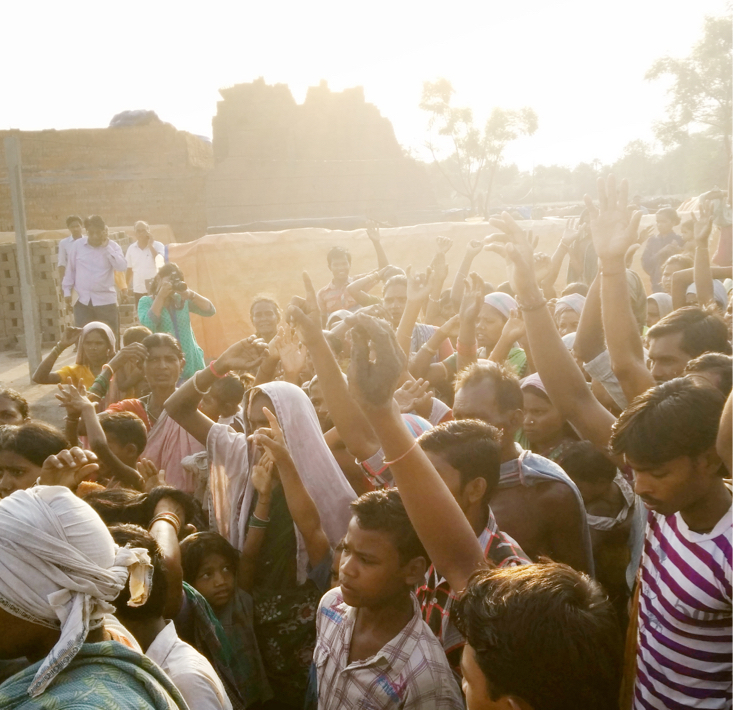
2020s — IJM Proves Protection for Millions is Possible
As justice systems are transformed and millions are protected, a future is fast approaching where half a billion people are protected from the everyday threat of violence. Despite a global pandemic that put millions of vulnerable people at even further risk of exploitation, justice proved to be unstoppable. More government authorities and justice systems were trained, equipped and empowered to protect their most vulnerable communities, and thousands more were rescued from exploitation.
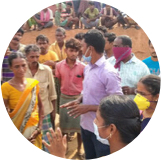
2020 – 7,000 Released from Slavery in Less than 48 Hours
As COVID-19 hit India harder than almost any other country in the world, the government never relented in its commitment to protecting migrant laborers who were being exploited through labor trafficking. After years of training, deepening partnerships and continued advocacy, the local government was equipped to find victims of forced labor and legally emancipate them from their unjust enslavement. A rescue led by local authorities at a brick kiln exposed a network of thousands of migrant workers being held in captivity, and the government acted swiftly. Within two days, over 7,000 victims of forced labor were freed and brought to safety.
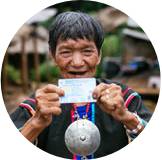
2020 – IJM Completes Program in Chiang Mai, Sees Lasting Change
After two decades of training, collaboration and partnership, IJM’s Chiang Mai office completed its goal. Local governments, law enforcement and community organizations are now fully equipped with everything they need to protect their citizens, and another justice system is transformed.
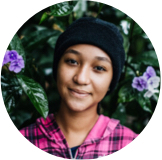
2021 – Child Marriage Banned in Dominican Republic
In June 2020, IJM began a grassroots movement to advocate for child marriage to be declared illegal and unconstitutional in the Dominican Republic by the government. In a remarkable sign of progress, the president responded by passing a bill that eliminated the legal grounds for child marriage in the country. This was yet another picture of what a safer future could be – where governments have the resources to proudly and decisively take ownership over the safety of their communities. As a result of this bill, an entire generation of young girls in the Dominican Republic will be safer from the abuse and trafficking that once was a daily threat.
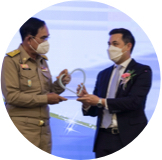
2022 – IJM Thailand Wins Award for Trafficking Prevention
The government of Thailand officially recognized IJM Thailand as an “Outstanding Agency in the Prevention and Suppression of Human Trafficking.” The team continues to work hard today in partnership with the local government to rescue and restore survivors, bring traffickers to justice, strengthen the justice system and scale demand for protection of their most vulnerable communities.
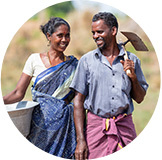
2022 – IJM successfully concludes projects to combat child sex trafficking in Mumbai and Kolkata and proves the success of IJM’s model in Tamil Nadu
In 2022, external evaluators confirmed that because of IJM’s collaboration with implementing partners and government officials, there were dramatic decreases in the prevalence of trafficking and slavery across India: 76% and 80% reductions in sex trafficking in Mumbai and Kolkata, respectively, and an 82% reduction in forced labor slavery in Tamil Nadu. This decrease marked a shift in casework for IJM Mumbai and Kolkata, from sex trafficking to forced labor slavery, and resulted in evaluators recommending scaling up our model and expanding to other states.

2023 – IJM successfully concludes project to combat child sex trafficking in the Dominican Republic
After a decade of perseverance and prayer, IJM Dominican Republic concluded its programming, having brought justice to victims and helped create an environment of protection where potential victims are spared from ever experiencing violence in the first place. During the decade of IJM’s presence, the Dominican Republic experienced a staggering 78% decrease in the overall prevalence of commercial sexual exploitation of children. The closing of our office in the DR marks another milestone on our journey to build a safer and more just world.
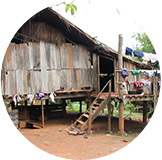
2024 – IJM is currently working in 19 countries in South and Southeast Asia, Africa, Latin America and Europe with plans to continue scaling over the next 5+ years
We know our model works. Now, we are scaling with an expansive network of on-the-ground partnerships, reducing crime and delivering protection for people around the globe. We have identified dozens of justice system strengthening projects spanning 25 countries that we believe can reduce the targeted violence by 50-85% This reduction will have a multiplying effect for millions more survivors who will experience the benefits of a functioning justice system—one that delivers justice, freedom and safety to all its citizens.
Global Progress
Working Together Means Protection for Millions
For over 25 years IJM’s mission has been to protect vulnerable people from violence
and create a safe future that lasts.
This is just a glimpse of the tangible impact made possible by courageous people like you who are committed to making the world safer for our most vulnerable communities.
The People That Make Protection Possible
Field Office Staff
Legal Professionals
Social Workers
Local Governments
Law Enforcement
Advocates
Corporations
NGOs
Grassroots Community Groups
Volunteers
Survivors
and Partners Like You
You are part of a global community united by a common vision for justice. Together, we have actively made the world a safer place.